 The Say No to the Casino Civic Association held a meeting this Monday in an effort to convince Nassau County officials to scrap plans for a multi-billion-dollar casino and entertainment venue on Long Island.
The Say No to the Casino Civic Association held a meeting this Monday in an effort to convince Nassau County officials to scrap plans for a multi-billion-dollar casino and entertainment venue on Long Island.
Casino opponents claim that such a gambling establishment would only increase crime rates, traffic, and the number of people affected by gambling problems. However, many people supported the casino proposal, explaining that the Sands Casino would attract more potential customers to the county and create more jobs.
Casino Proponents Focus on the Economic Benefits
The casino proposal came from the Las Vegas Sands Corporation, which has signed a deal to purchase the lease for the Nassau Coliseum and its surrounding area and establish a multi-billion-dollar casino if approved. The property would include a casino area, outdoor community space, four- and five-star hotel rooms, a performance venue, and convention spaces. But opinions on the casino proposal are polarized.
Many residents of Long Island as well as business owners support the casino proposal. According to Frank Borrelli of Borrelli’s Restaurant, a casino would bring more customers to his eatery in East Meadow. He added that the gambling establishment would support the small business in the area.
Elizabeth Wellington of the Long Island African American Chamber of Commerce said that many young people are leaving the area due to the lack of job opportunities and the casino would solve this problem.
Why Some People Oppose the Casino Project?
Corinne Zarou and Annette Cella live close to the Coliseum. The two women expressed their concerns that a gambling establishment would increase traffic and noise. Ms. Cella also pointed out that a casino in the county would be a catalyst for increased drunk driving on Hempstead Turnpike and Meadowbrook.
In February this year, the Garden City Village Board announced that it is against the casino project. The developers explained that the casino would not only create more jobs but also boost the local economy by attracting fresh money flow.
Pearl Jacobs of the Nostrand Gardens Civic Association said that money is not more important than young people’s future. Pastor Arthur Mackey of Mount Sinai Baptist Church did not support the casino project, too. He said that the gambling venue would have a negative effect on the Black and brown community.
Hofstra University is located just across the street from the Nassau Hub. Dr. Susan Poser, the current President of the University, explained that the gambling establishment could encourage many students to gamble. She also pointed out that many college students are already facing gambling problems. Earlier this year, a petition against the proposed casino at the Nassau Coliseum site was signed by over 1,500 residents.
News 12 reported that Nassau County Executive Bruce Blakeman will approve the casino project only if the locals support the idea. At the end of the month, the county Legislature is to vote on the casino project.
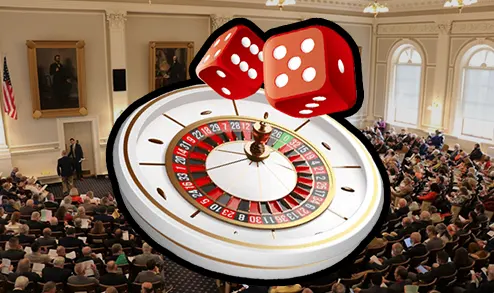 On March 30, the New Hampshire online casino legislation passed through the Senate, and now it heads to the House of Representatives for consideration. Rep. Tim Lang’s legislative effort failed on the second reading by a vote of 11-12, but Senate President Jeb Bradley supported Lang and called a recess. The Senate agreed to reconsider its decision and passed the online casino bill by a narrow 12-11 vote.
On March 30, the New Hampshire online casino legislation passed through the Senate, and now it heads to the House of Representatives for consideration. Rep. Tim Lang’s legislative effort failed on the second reading by a vote of 11-12, but Senate President Jeb Bradley supported Lang and called a recess. The Senate agreed to reconsider its decision and passed the online casino bill by a narrow 12-11 vote. 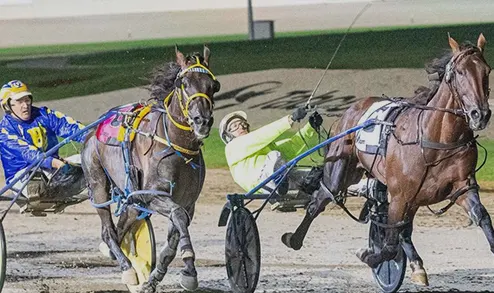 A group of investors shared that they eye the opportunity to establish a new harness racetrack and casino (racino) in south suburban Richton Park that would boost Illinois’ horse racing industry. To realize their plans, state legislators should remove Hawthorne Race Course’s power to veto any racino proposals within 35 miles of its track in west suburban Stickney. The proposal to build a racino on an 80-acre plot of land comes from the recently-established Greenway Entertainment Group.
A group of investors shared that they eye the opportunity to establish a new harness racetrack and casino (racino) in south suburban Richton Park that would boost Illinois’ horse racing industry. To realize their plans, state legislators should remove Hawthorne Race Course’s power to veto any racino proposals within 35 miles of its track in west suburban Stickney. The proposal to build a racino on an 80-acre plot of land comes from the recently-established Greenway Entertainment Group. 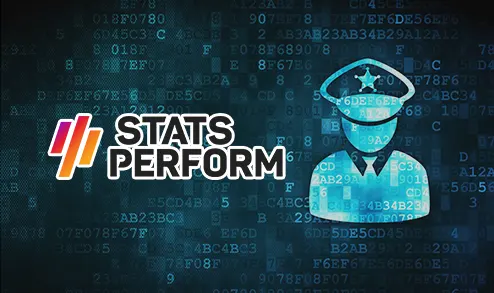 Fast data collection has become an integral part of the worldwide sports betting industry, with the number of companies offering such services growing exponentially, further increasing the competition in the global online gambling market.
Fast data collection has become an integral part of the worldwide sports betting industry, with the number of companies offering such services growing exponentially, further increasing the competition in the global online gambling market.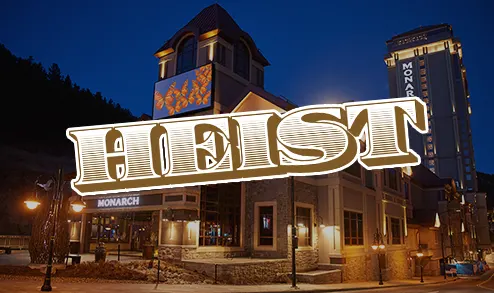 Ever since gambling was launched in the state of Colorado in 1991, authorities have never seen such a major casino heist in the Centennial State. A mountain town casino heist of $500,000 in cash is investigated by state authorities.
Ever since gambling was launched in the state of Colorado in 1991, authorities have never seen such a major casino heist in the Centennial State. A mountain town casino heist of $500,000 in cash is investigated by state authorities.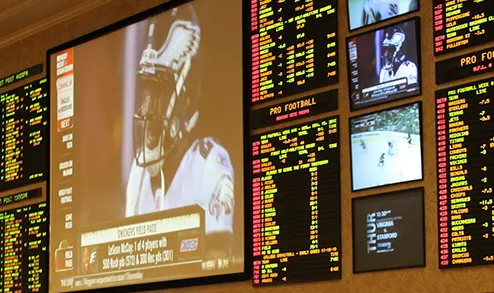 North Carolina moves one step closer to legal sports betting as the House of Representatives okayed House Bill 347 (HB 347) which seeks to allow wagering on professional, amateur, and collegiate sports events via smartphones and other electronic devices. The topic of introducing legal sports betting has been hotly debated by lawmakers in the state for over two years. A similar bill (SB 38) failed to gain legislative approval in 2022 by a ludicrously narrow margin of one vote against. Now it appears lawmakers in the Tar Heel State have started to warm up to the idea of legal sports wagering.
North Carolina moves one step closer to legal sports betting as the House of Representatives okayed House Bill 347 (HB 347) which seeks to allow wagering on professional, amateur, and collegiate sports events via smartphones and other electronic devices. The topic of introducing legal sports betting has been hotly debated by lawmakers in the state for over two years. A similar bill (SB 38) failed to gain legislative approval in 2022 by a ludicrously narrow margin of one vote against. Now it appears lawmakers in the Tar Heel State have started to warm up to the idea of legal sports wagering.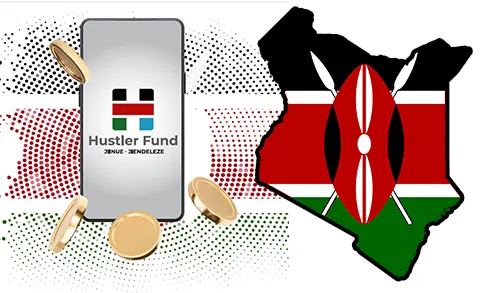 Following the promises he made during his 2022 campaign, president William Ruto introduced Kenya’s Financial Inclusion Fund also known as Hustler Fund. The purpose of this fund is to provide Kenyans with instant loans upon request, which will ultimately ensure more cost-effective access to credit. This will help Kenya to combat the increasing issues with credit scores among poorer Kenyans who cannot access cash.
Following the promises he made during his 2022 campaign, president William Ruto introduced Kenya’s Financial Inclusion Fund also known as Hustler Fund. The purpose of this fund is to provide Kenyans with instant loans upon request, which will ultimately ensure more cost-effective access to credit. This will help Kenya to combat the increasing issues with credit scores among poorer Kenyans who cannot access cash. 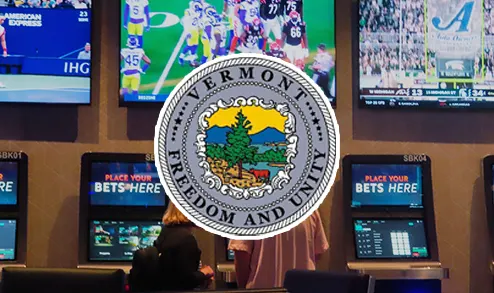 On Friday, for the first time ever, the Vermont House of Representatives passed bill HB 127. The said piece of legislation would legalize sports betting in the Green Mountain State. While the bill still needs to be approved by the Senate, during the Friday session, the bill went straight to voting, with no discussion being held on the floor.
On Friday, for the first time ever, the Vermont House of Representatives passed bill HB 127. The said piece of legislation would legalize sports betting in the Green Mountain State. While the bill still needs to be approved by the Senate, during the Friday session, the bill went straight to voting, with no discussion being held on the floor.  Belgian football has joined forces with the rest of the country’s sports sectors in an effort to defeat the proposed ban on gambling advertising that is to take effect from July 1, 2023. According to estimates, Belgian football clubs receive at least 12% of the sponsorship revenues from betting operators. Sports stakeholders have confirmed that such a ban would have a negative effect on football’s revenue and will not yield the desired result of protecting people from gambling problems.
Belgian football has joined forces with the rest of the country’s sports sectors in an effort to defeat the proposed ban on gambling advertising that is to take effect from July 1, 2023. According to estimates, Belgian football clubs receive at least 12% of the sponsorship revenues from betting operators. Sports stakeholders have confirmed that such a ban would have a negative effect on football’s revenue and will not yield the desired result of protecting people from gambling problems. 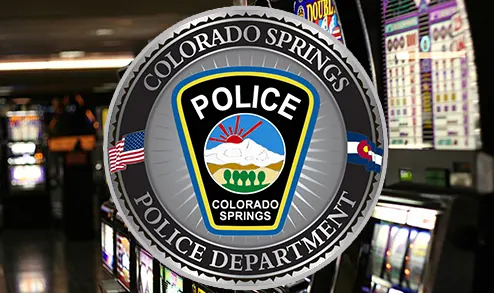 The Colorado Springs Police Department (CSPD) issued notices to at least 32 businesses, warning them that the gaming machines they host are illegal as they offer a monetary return. Lieutenant Mark Chacon with the Colorado Springs Police Department said that most of these businesses were not aware of the fact that these gaming devices are illegal in Colorado, and that is why the agency only issued warnings instead of strictly enforcing the law.
The Colorado Springs Police Department (CSPD) issued notices to at least 32 businesses, warning them that the gaming machines they host are illegal as they offer a monetary return. Lieutenant Mark Chacon with the Colorado Springs Police Department said that most of these businesses were not aware of the fact that these gaming devices are illegal in Colorado, and that is why the agency only issued warnings instead of strictly enforcing the law.